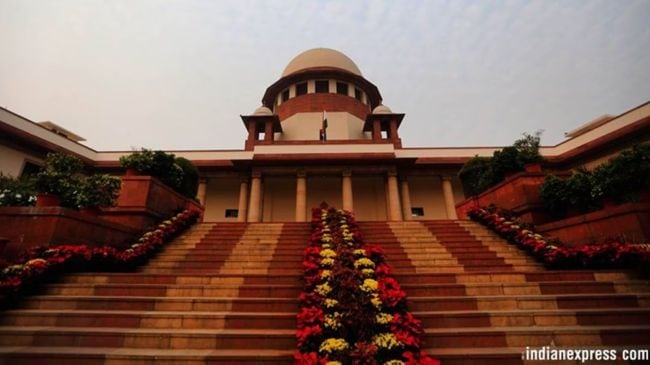Opinion The burden of submitting criminal past of the accused shouldn’t be on individuals
The courts now have the right to dismiss SLPs without having to distinguish false disclosure from genuine incapacity to know one’s criminal history
 Supreme Court in a recent order asserted that criminal antecedents should be disclosed compulsorily in any SLP seeking bail (File photo)
Supreme Court in a recent order asserted that criminal antecedents should be disclosed compulsorily in any SLP seeking bail (File photo) Written by Yash Giri
The Supreme Court in a recent order (Munnesh v State of Uttar Pradesh) asserted that criminal antecedents should be disclosed compulsorily in any Special Leave Petition (SLP) seeking bail. The Court highlighted how bail applications are being filed (increasingly so) without disclosing the criminal antecedents of the person seeking bail. The order further directed that any person who is seeking bail in the apex court must mandatorily disclose, in the synopsis of the petition, if they have knowledge of their involvement in any criminal case.
Another aspect that has been brought to the fore by the Court is that the SLPs, which lack these puzzle pieces, are often completed by the state through their counter-affidavits. The above order reflects how oblivious courts are to the ground reality. It can be exceptionally difficult for a person behind bars to know their criminal antecedents or the stage of their pendency.
For instance, in the recent case involving Kunal Kamra, there were five FIRs registered — four of them were lodged in Khar police station, and one was in Dombivli. Now, it is easier for a public figure like Kamra to know that there are five FIRs lodged against him, but the same cannot be said for a person who doesn’t have such resources at his disposal. Take, for example, cases where the bail applications are filed by the family or the pairokar of the person in jail. These family members who genuinely do not possess any information about the criminal history of their relative, pass on to their lawyers this “hollow information”, resulting in a bail application having no mention of the criminal antecedents, which, as per the above order, will lead to a dismissal of the bail application.
What is important for the courts to realise is that a citizen cannot be burdened with the responsibility to find out the details of all the cases registered against him while behind bars. It is also unfair to shift this responsibility upon his family members or pairokar. The courts now have the right to dismiss such applications without having to distinguish false disclosure from genuine incapacity to know one’s criminal history.
This mandate of disclosing one’s history is not wrong per se, but the burden for this should be cast on the state, not the other way around. It is the state that can reveal an entire list of cases, if any, against a person. The precedent being set by the Supreme Court flies in the face of the principle of “bail is the rule and jail the exception”.
According to a report by the National Crime Records Bureau published in 2015, the majority of under-trial prisoners are illiterate or semi-illiterate. They require major resources and additional support to understand the court process. The new order further complicates this process for them.
Lord Russell of Killowen, Chief Justice, in his address to the grand jury at Salisbury Assizes in 1899, said: “….it was the duty of the Magistrate to admit accused persons to bail, wherever practicable, unless there were strong grounds for supposing that such persons would not appear to take their trial. It was not the poorer classes who did not appear, for their circumstances were such as to tie them to the place where they carried on their work. They had not the golden wings with which to fly from justice.”
This unawareness cannot be put in the same box as being ignorant of the law. Interestingly, in the above-mentioned order it is apparent that the Court was apprised about the criminal history of the applicant only after the state pointed out the same in their counter affidavit. A step towards placing the burden of such a responsibility on the state would help in the functioning of the courts and those behind bars.
The writer is advocate, Supreme Court of India





